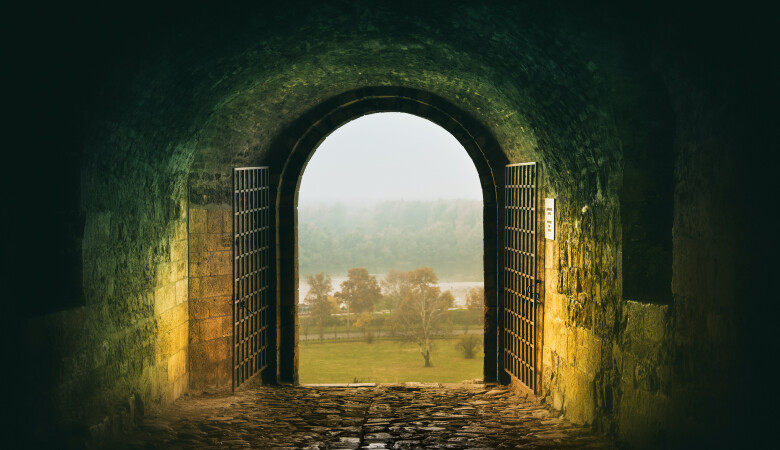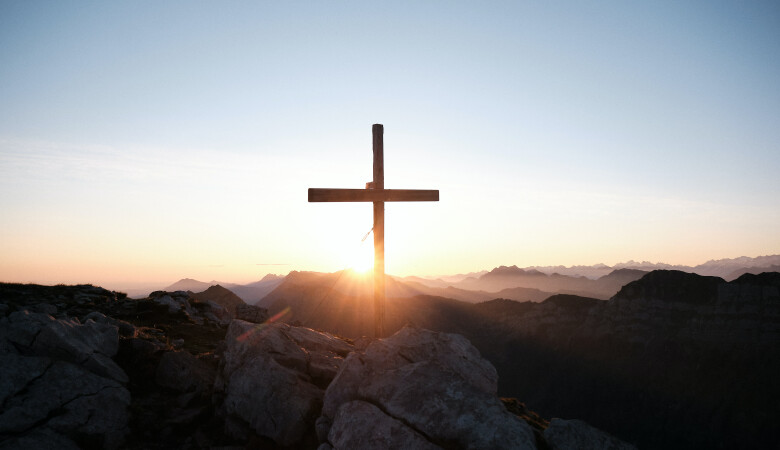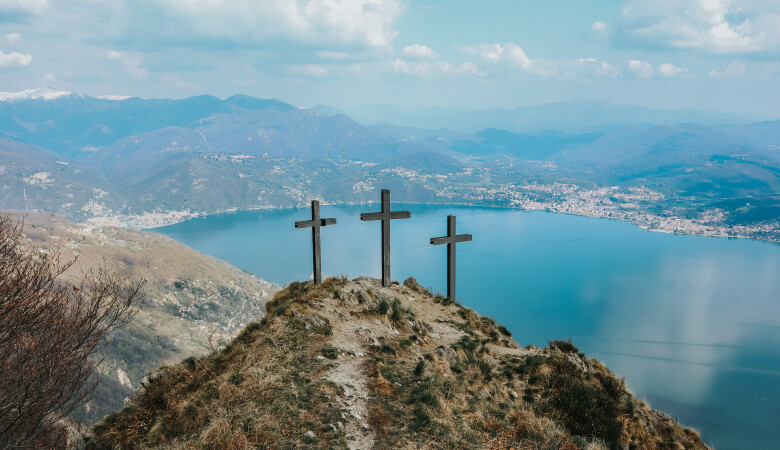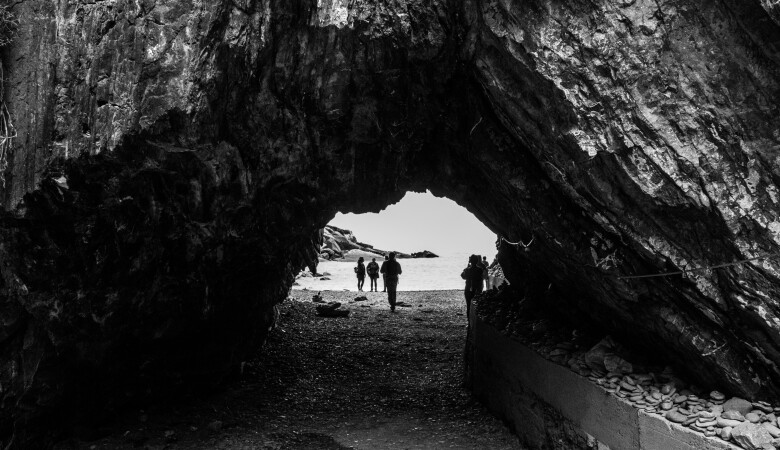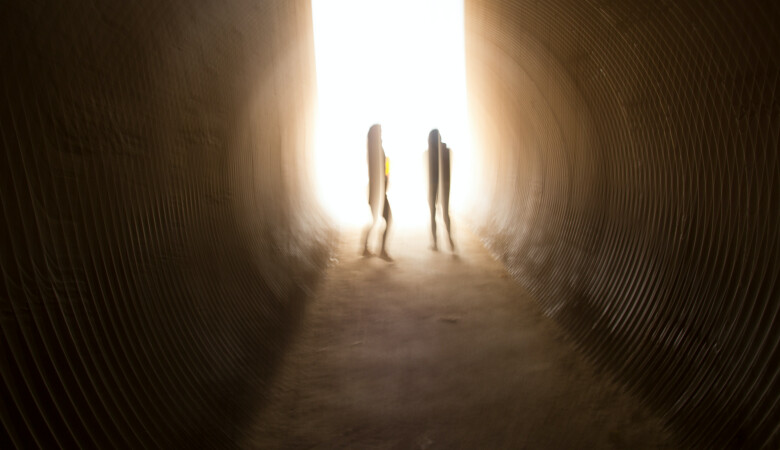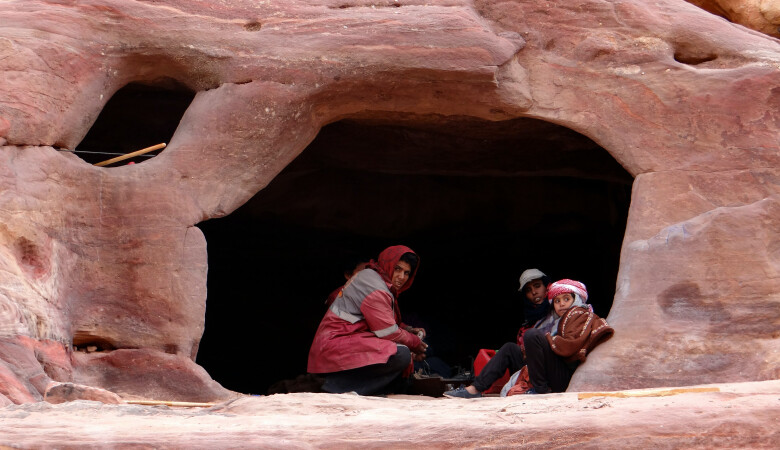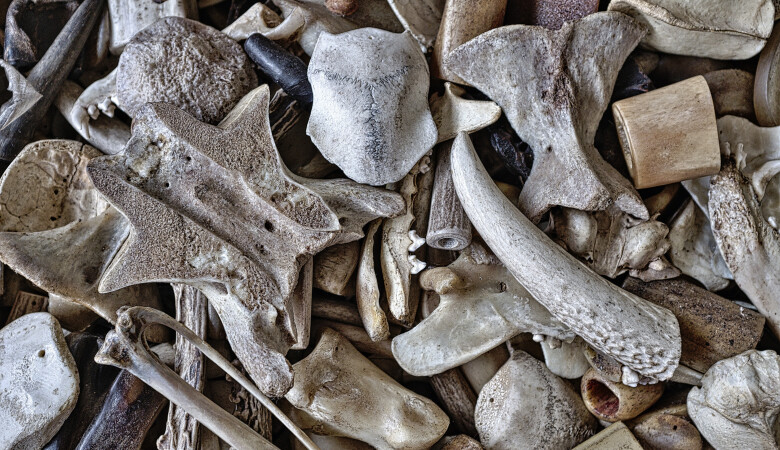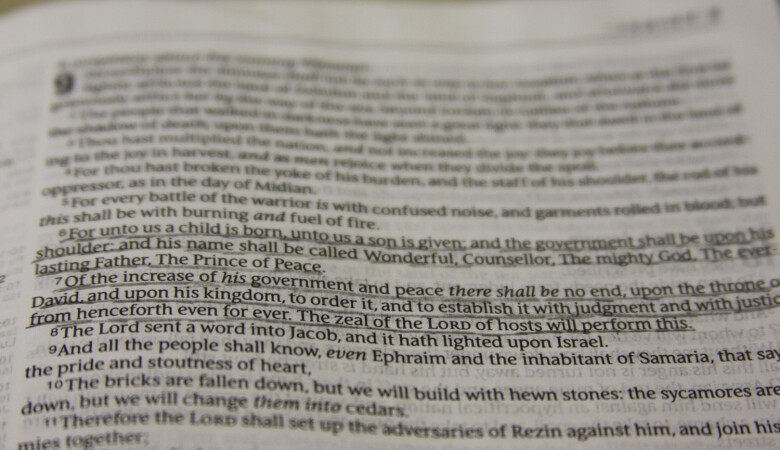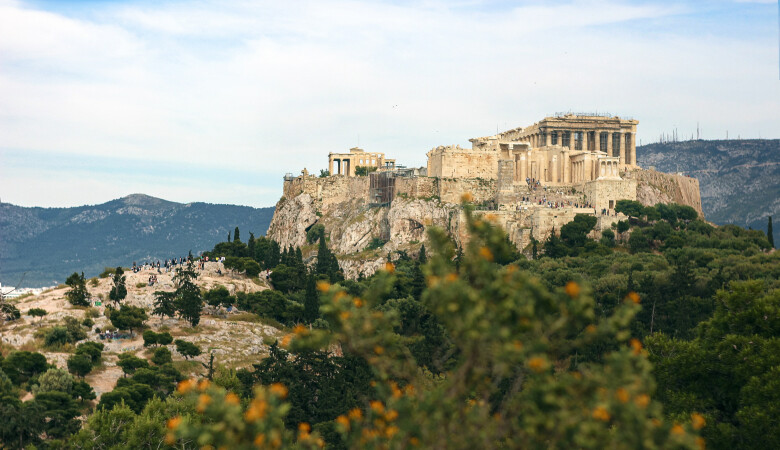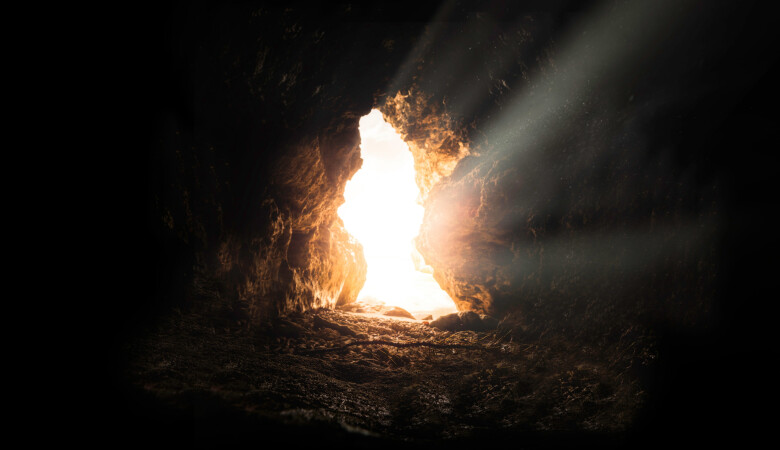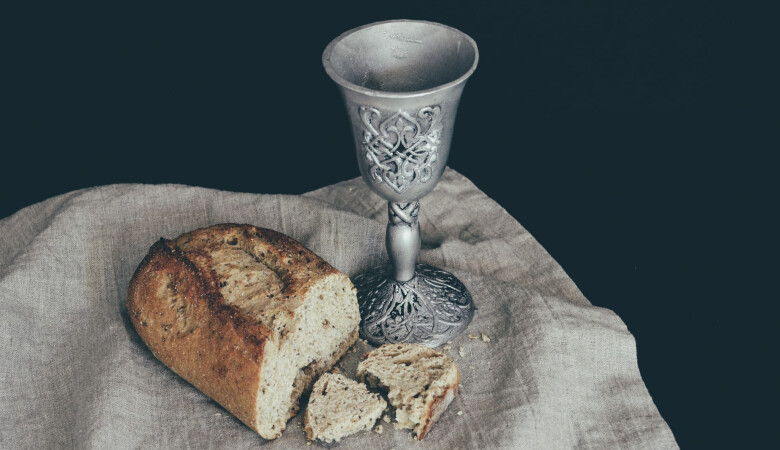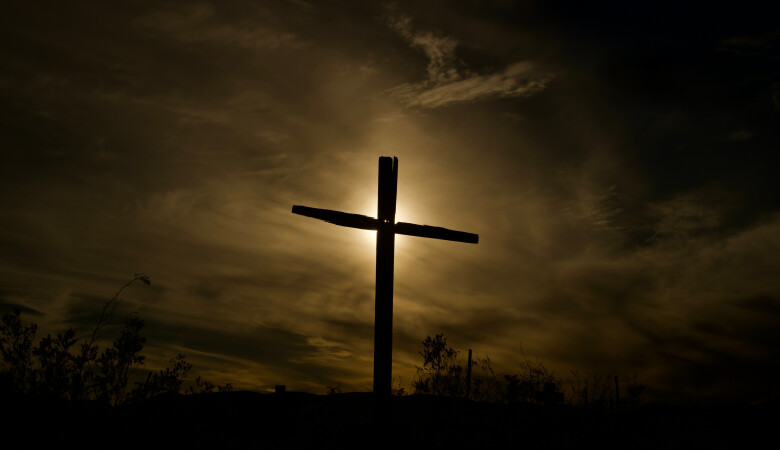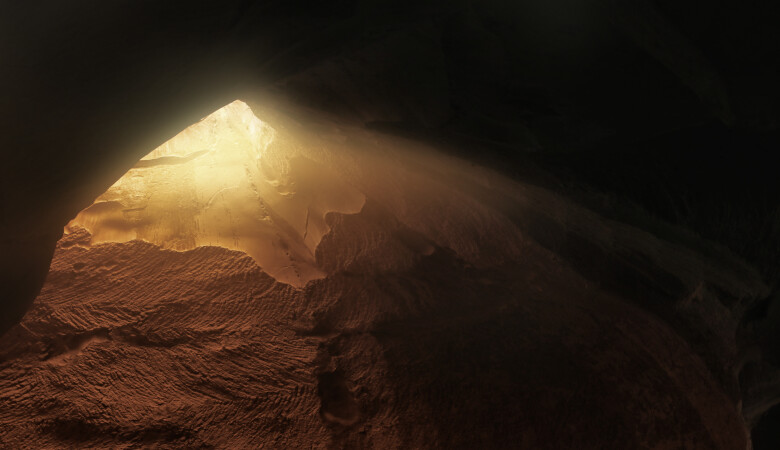Christ's Resurrection Body and Ours
April 11, 2004 | Andy Davis
Luke 24:25-44
Resurrection of Christ
sermon transcript
The Glorious Resurrection of Christ
Our Greatest Enemy, Our Greatest Celebration
Our God, the Eternal God, the Creator of the ends of the earth, is a passionate being. He's nothing like the dispassionate machine, pure thinking that the Greeks thought of when they thought of God, but he's a passionate being. And therefore, it stands to reason that Jesus, the perfect representation of the father, the exact representation of him, it says in Hebrews 1, should also, himself, be a passionate being. Perhaps you would be surprised at the depth of his passion. Perhaps you'd be surprised at his emotional nature because his emotions were perfect and pure in every way, different from ours. They were tied to his nature and tied to his plan.
If you had been with Jesus moments before he raised his friend, Lazarus, from the dead, you would have seen him weeping. And you would have thought like the people who are with him, “Behold how he loved him,” and he did love him. But you would not have seen one-millionth part of the emotions that Jesus was feeling at that moment. As you look carefully at that account in John 11, there's a strange word there in the Greek, it says that Jesus “enraged within himself in his spirit.” It's an odd Greek word, but it's incredibly strong. It says it twice. The NIV brings it over very tamely. It says something like, “Jesus was deeply moved in spirit and troubled and said, ‘Where have you laid him?’” But the word is actually very strong. He was outraged, or I guess we really could put it, because it says he was outraged in his spirit, he was more enraged.
Why was he angry? Was He angry at Martha and Mary and the friends there at the tomb for weeping? No, not at all. He loved them dearly. That wasn't it. Was he enraged at the lack of faith? No. Was he enraged at the outcome? No, that was never in doubt. Lazarus was gonna be on his feet within moments. Why was he enraged there? Well, it's because in his holy nature, he hates death. He hates it. Death is the enemy. The grave is the enemy. And he will have a victory over that enemy.
Well, if all that's true, if Jesus was enraged over death at that moment, what must his emotions have been like when he came through the wall of the tomb? When he got to say it to his own beloved disciples,”You can see, it is I, myself, I'm alive. Come and see my hands and touch them.” The joy, overwhelming. Jesus predicted, “My joy will be in you. It'll be such a joy that no one can ever take from you.” What was the joy of Jesus when he walked on the earth again in that resurrected body? What an incredible thing. And the prediction of it that he made at the site there with Lazarus, “I am the resurrection and the life. He who believes in me will live, even though he dies. And whoever lives and believes in me will never die.” And then he asked the question: “Do you believe this?” And that's the question before you today. Are you sitting here in this church today as a believer in the resurrection? Do you believe that Jesus died on the cross? Do you believe that he rose from the dead on the third day? Well, if you do, Jesus makes a promise to you. He said in John 14, “Because I live, you also will live.”
So I thought it would be good for us today to just study the nature of Jesus' resurrection. To try to understand it, not just as an academic or theological exercise, but as a prophetic one for you, personally. That through faith in Christ, you can say, “He is the first fruits of those who have been raised from the dead, and I am, someday, going to be part of the final harvest.” To me, that sounds like a wonderful way to spend our time. To try to understand the promise that Jesus made when he said, “Because I live, you also will live.”
Christ’s Resurrection Predicted
Now, Jesus' resurrection had been predicted 1,000 years before he was born. David gave it to us in Psalm 16. It says there very plainly, “You will not abandon me to the grave, nor will you let your Holy One see decay.” Well, that was not fulfilled in David the prophet, the king. David's body decayed and awaited the resurrection, but Jesus fulfilled it. Jesus was raised from the dead on the third day in direct fulfillment of the scriptures. But Jesus himself had predicted his resurrection again and again and again.
He said in John 10:18, and this is the foundation of our hope. Jesus has absolute power over death. John 10:18 says in one translation, “No one can kill me without my consent. I lay down my life voluntarily for I have the right and power to lay it down when I want to, and also, the right and power to take it up again. For the father has given me this right.” Isn't that marvelous? Jesus has absolute power over death, and he will exert that power on your behalf if you are his child by faith.
And Jesus, as a matter of fact, staked his reputation, the reputation of his entire reign on his ability to triumph over the grave. He said in Matthew 12:38 the following, “Some Pharisees and teachers of law said to him, ‘Teacher, we wanna see a miraculous sign from you.’ He answered, ‘A wicked and adulterous generation asks for a sign! But none will be given it except the sign of the prophet Jonah. For as Jonah was three days and three nights in the belly of a large fish, so the Son of Man will be three days and three nights in the heart of the Earth.’” Jesus staked his reputation, he staked his entire kingdom to his ability to triumph over the grave. No other religious leader in history has done that. What a bold thing to do.
But Peter told us why. It was impossible for death to keep its holds over him, and so it was a sure thing. “And when you see me rise, you will know that I am the eternal God.” This is not a matter of mere metaphysical debate. The fact of the matter is our entire faith and our future rests on whether this actually happened or not. 1 Corinthians 15 says so. “If Christ has not been raised,” it says there, “Our preaching is useless and so is your faith. More than that, we are found to be false witnesses about God, for we have testified about God that he raised Christ from the dead. But if he did not raise him, then in fact the dead are not raised. For if the dead are not raised, then Christ has not been raised either. And if Christ has not been raised, your faith is futile; and you are still in your sins.”
Wilbur Smith put it this way in a book on apologetics. He said this: “The meaning of the resurrection, significance of it, is a theological matter. But the fact of the resurrection is a historical matter. The nature of the resurrection body of Jesus may be a mystery, but the fact that the body disappeared from the tomb is a matter to be decided upon by historical evidence; the places of geographical definiteness. The man who owned the tomb was a man living in the first half of the first century. The tomb was made out of rock in a hillside near Jerusalem, and was not composed of some mythological gossamer or cloud dust, but is something which has geographical significance. The guards put before the tomb were not aerial beings from Mount Olympus. The Sanhedrin was a body of men meeting frequently in Jerusalem. As a vast mass of literature tells us, this person, Jesus, was a living person, a man among men, whatever else he was. And the disciples who went out to preach the risen Lord were men among men, men who ate, and drank, and slept, suffered, worked and died. What is there merely doctrinal about this? This is a historical problem.”
And so Jesus staked his entire reputation to his physical historical resurrection from the dead. And he predicted again and again and again that he would be raised. Matthew 16:21, “From that time on, Jesus began to explain to his disciples that he must go to Jerusalem and suffer many things at the hands of the elders, chief priests, and teachers of the law, that he must be killed, and on the third day be raised to life.” Matthew 17:9, Matthew 17:22-23, 20:18-19, 26:31. That's five different times in Matthew's gospel he spells out very plainly what will happen to him. He will be killed and on the third day, be raised to life.
Christ’s Death Accomplished
Well, Jesus' death has now been accomplished. Good Friday has passed, his blood has been shed, and he is dead. He's buried. He's in the tomb. There's no doubt about his death. Romans executed hundreds, if not thousands, every year. They knew when someone was dead and they didn't break his bones. They put a shaft up in his side and water and blood flowed out. There was no doubt about his death. But there was great doubt about his resurrection. As a matter of fact, nobody on earth was expecting it, nobody. Not the women who went to anoint his body, not the guards that were there guarding, not the disciples; none of them were expecting the resurrection, but they should have. And so Jesus said to the disciples on the road to Emmaus, “How foolish you are, and how slow of heart to believe all that the prophets have spoken. Did not the Christ have to suffer and be raised from the dead on the third day?”
Christ’s Resurrection Accomplished
And so the resurrection has occurred early in the morning while it was still dark at dawn on the first day of the week. The women went and the stone was removed, and the body was gone. The resurrection has occurred. 1 Corinthians 15:20, “Christ has indeed been raised from the dead, the first fruits of those who have fallen asleep.” And that's what I want to ponder with you this morning. If Jesus is the firstfruits, where is the harvest? When will the harvest be? At the end of the age, it tells us. And who will be included? All those who have trusted in him by faith. And what will the nature of that harvest be? Well, we will be made like him. Like him, we will also rise. This is the promise of our future resurrection.
The Promise of our Future Resurrection
Christ’s Eternal Purpose: A Total Salvation from Sin
Christ has an eternal purpose, and that is to save us from sin. From everything that sin did to us, from all of the ravages of sin, he came to save us. Our minds, darkened by sin; our emotions clouded by sin; our motives enticed by sin; our souls polluted by sin; and our bodies decaying and corrupted because of sin. He came to be a total Savior in every respect, and that extends to our bodies. He is going to be our pattern, and we will be conformed to his image in every respect. For this is what was worked out before the foundation of the world.
Christ’s Promises
Romans 8:29-30, it says, “For those whom God foreknew he predestined to be conformed to the likeness of his son, that he might be the firstborn among many brothers. And those he predestined, he also called; those he called, he also justified; and those he justified, he also glorified.” Conformed to the image of his son equals glorified. It's the same thing. And therefore, Jesus' resurrection body is a pattern for our future. Christ promised very plainly, “Because I live, you also will live.” And so Jesus is the pattern for our future resurrection.
The New Creation
Jesus promised, in the Scripture, promised that some day, there would be a new creation. Isaiah 65:17 says, “Behold, I create a new heavens and a new earth. The former things will not be remembered, nor will they come to mind.” Well, what is that referring to? Well, at present, there's a cycle of corruption and decay in this biosphere, in this earth. Things live for a while, and then they die, and they fall back into the ground, and they are decomposed, they're broken apart, and then recycled again. Talks about this in Romans 8:20-21, “For the creation was subjected to frustration not by its own choice, but by the will of him who subjected it in hope that the creation itself will be liberated from its bondage to decay and brought into the glorious freedom of the children of God.” Jesus' resurrection body is the first fruit of that new creation, where there'll be no decay, no corruption, no bondage anymore, but glorious freedom.
The Present Physical Body Described
Fearfully and Wonderfully Made, But…
Now, our present physical bodies are wonderful things, aren't they? David says in Psalm 139:14, “I praise you because I am fearfully and wonderfully made; Your works are wonderful, I know that full well.” Clear testimony is given from medical science to the wonders of the physical body, the present physical body. Dr. Jerry Bergman put it this way: “Mankind has been fascinated with the form and function of the human body from the very beginning. For beauty and sheer simplicity of line, it is unmatched. As a machine, the human body is the very pinnacle of God's work, formed on the sixth and last day of Creation, after which God declared it is very good. Chemically, the body is unequaled for complexity. Each one of its 30 trillion cells is a mini chemical factory which performs about 10,000 chemical functions. And every cell has one trillion bits of data, equal to every letter in 10 million books. Each one also replaces itself every seven years. Each one is independent, yet cooperates with many millions of other cells. The body's billions of parts all work together as a team. Its 206 bones provide the framework, and its 639 muscles enable it to move with incredible split-second timing. Its skill to balance is such that we can perform feats of acrobatics, and yet, have such strength that official human weight-lifting feats abound. Our body is controlled and coordinated by over 16 billion neurons and 120 trillion connection boxes packed together into an unfathomably complex set of neuro-passways. The whole body system functions as a unified whole to enable a human being to run, sing, remember, create and achieve the myriads of other phenomenal tasks, which we usually take for granted.”
Garden of Eden Prohibition
That's our present physical body. It's a marvel of God's creation. We are, indeed, fearfully and wonderfully made. And yet, we are corrupted by sin. Sin affects everything we do, physically. And for this reason, I think God established, in the Garden of Eden, a prohibition against eating from the Tree of Life that we may live forever. Can you imagine living forever in these present physical bodies? Thousands of years in a wheelchair? Thousands of years without teeth? Thousands of years with the humiliation of our bodies. And we all see the direction they're going. We know where it's heading. And so God, in his grace, ordained a better way. He said, “Flesh and blood shall not inherit the Kingdom of God.” We must be transformed. We must be made into his likeness. Charles Wesley said, “Made like Him, like Him we rise.”
Various Descriptions of the Physical Body
Therefore, the Scripture gives various descriptions of our present physical body. Romans 6:6, it says, “The body of sin.” Romans 6:12 calls it “the mortal body,” that means the body is subject to death. Romans 7:24 calls it “the body of death.” Other scriptures call it “of the dust” or “earthy.” Genesis 3:19, God said, “By the sweat of your brow you will eat your food until you return to the ground since from it, you were taken; for dust you are and to dust you shall return.” 1 Corinthians 15:47 says, “The first man, Adam, is from the earth;” earthy. “The second man, Christ, is from heaven." 2 Corinthians 4:7 calls our body “a jar of clay.” Philippians 3:21 calls it “a lowly body” or “a body of humiliation.” Another passage or two other passages referred to it as “an earthly tent.” 2 Peter 1:13, he says, “I think it is right to refresh your memory as long as I live in the tent of this body.” That suggests impermanence, doesn't it? Nothing that we're gonna live in forever. 2 Corinthians 5:4, Paul said, “For while we are in this tent, we groan in our burden because we do not wish to be unclothed, but to be clothed with our heavenly dwelling so that what is mortal may be swallowed up by life.”
The Bible also says the body is a great battlefield against sin. Romans 7:22 and 23, it says, “In my inner being I delight in God's law; but I see another law at work in the members of my body, waging war against the law of my mind and making me a prisoner of the law of sin at work within my members. What a wretched man I am! Who will rescue me from this body of death?” So it's a battlefield. And yet for all of that, 1 Corinthians 6 says that our bodies are a temple of the Holy Spirit. And in Romans 6, it says that we should use the instruments of our body as servants to righteousness.
And so there it is, a paradox, “fearfully and wonderfully made,” David says in Psalm 139, and yet the body is denigrated in many passages of Scripture, “body of sin,” “mortal body,” “humiliated body,” and yet this is all we have to serve God with. And so we're groaning, waiting that someday, we might receive something better than what we really have.
The Reality of Aging
Meanwhile, we all are under the burden of aging. Some people feel it more than others. The seven patriarchs in Genesis 5 average 929 years of life before they died, 929. However, after the flood of Noah, the ages came down precipitously. Abraham lived only 175 years. Did you hear me? Only 175 years? Jacob, only 147. Moses, 120. King David 70. Modern times, average lifespan of a human being is, in the US, 77 years. Men live to an average of 72 years, women to an average of 79 years. In Japan, the averages are a little higher, as much as 80 years.
There's some optimistic statements based on science and modern trends. I found a website called The Immortality Institute, dedicated to infinite life spans through the advancement of science. I was intrigued. I like science, I really do. I think it's limited, but I'm interested. And so I read a book that they're going to publish. They have some excerpts there, The Scientific Conquest of Death: Essays on Infinite Lifespans, publication date sometime this spring, so look forward to that.
But in 1796, they say, life expectancy hovered around 24 years. 100 years later, doubled to 48. In our modern world of air conditioners, hand washing and booster shots, you have a good chance of living 63 years, which is the world average. However, for those fortunate to live in a first world country, lifespan jumps considerably. Nick Bostrom, the founder of the World's Transhumanist Association, predicts in his article, “Case Against Aging,” “Aging is a biochemical process and humans will learn how to intervene in it and slow it down.” Optimistically, Bostrom sees the elimination of aging as theoretically possible. Please don't hold your breath.
God has ordained that we are under the humiliation of death, and aging is part of that. Why isn't Michael Jordan still playing in the NBA? Is it because he doesn't love the game anymore? Why isn't Ronald Reagan making lots of money on a traveling speaking circuit? Is it because nobody'd be interested in what he has to say? Why do female movie stars enjoy so brief moments in the public eye before they sink back into obscurity? Why is Hollywood the plastic surgery capital of the world? Why do many Americans dread their birthdays with dark humor? Why do nursing homes have railings and padded walls in the hallways? The answer to all those questions is the humiliation of aging.
And on the other side of the humiliation of aging, in which we are gradually little by little losing capability, losing physical prowess, gaining weight, losing hair, losing eyesight, losing teeth, on the other side of that, waits the grave. It says in Romans 8:23, “As a result of this, not only so, but we ourselves who have the first fruits of the Spirit, groan inwardly as we wait eagerly for our adoption as sons, the redemption of our bodies.” And so groaning inwardly is part of being a Christian. Even we who have the first fruits of the Spirit, groaning and waiting that some day our bodies will be made like Jesus'.
The Future of the Present Physical Body
Well what is the future of our physical body? Well, gradual aging under corruption, as we've said. There's an interesting account in 2 Samuel 19 of a man named Barzillai, who helped David when he was fleeing from his son, Absalom. David wanted to reward him and say, “Why don't you come with me to Jerusalem, sit at the king's table, eat and just enjoy the best that we have to offer?” Barzillai said this, “I am now 80 years old. Can I tell the difference between what is good and what is not? Can your servant taste what he eats and drinks? Can I still hear the voices of men and women singers? Why should your servant then be an added burden to my lord the king? Let me go home and die at my ancestral property and be buried with my fathers.” He said, I couldn't enjoy that life. I can't taste much anymore. I can't hear much anymore, so just let me stay put. That's fine with me.
So that's our future. And Americans fight it, don't they? They spend lots and lots of money on anti-aging creams and surgical procedures and other things, doing what we can to fight the aging process, and that the other side of that comes physical death, the separation of the soul from the body. Hebrews 9:27, it says, “Man is destined to die once and after that to face the judgment.” And after that, what? Well, you were hoping I would stop there, but I won't. Because the scripture says in Psalm 49:14, “Like sheep, they are destined for the grave and death will feed on them. The upright will rule over them in the morning. Their forms will decay in the grave, far from their princely mansions.” That's the future, decay and corruption in the grave. And after that judgment.
The Future Resurrection Body Described
Christ’s Resurrection Body the Pattern
Well, that's our present physical bodies. We don't need to be reminded. Perhaps, we would just like to forget about our physical limitations, but the scripture doesn't let us do it. Instead, it gives us a better hope. It says that Jesus is the firstborn from among the dead. That he is the first fruit. His body is the first fruit of a future grand and glorious resurrection. And so let's take a moment and study that body. First of all, Christ's resurrection body was a physical body.
Look at the text that was read earlier in Luke 24:36 and following. It says there, “While they were still talking about this, Jesus himself stood among them and said to them, ‘Peace be with you.’ They were startled and frightened thinking that they saw a ghost. He said to them, ‘Why are you troubled? And why do doubts rise in your minds? Look at my hands and my feet. It is I, myself. Touch me and see. A ghost does not have flesh and bones, as you see I have.’ Jesus' resurrection body had flesh and bones. If you had been there at the time, you could have touched it. You could have done what Thomas did, put your fingers in the wounds. It's a physical body, not a Spirit or a ghost of some sort, so also will our bodies be physical bodies, real live bodies.
Secondly, Christ's resurrection body looked like a normal body to observers. The disciples on the road to Emmaus thought he was only a stranger to Jerusalem and knew nothing of these things. They thought he was just a regular guy. Interestingly, Mary thought he was the gardener. In John chapter 20, “Thinking he was the gardener, she said, ‘Sir, where have you taken him? And I'll go get him.’” So he looked like an average, ordinary individual human being.
Thirdly, Christ's resurrection body could eat food. He could eat food. Again, in the account in Luke 24, it says, “While they still did not believe it, because of joy and amazement, he asked them, ‘Do you have anything here to eat? And they gave him a piece of broiled fish and he took it and ate it in their presence.’” Interestingly to me, all told in all of the resurrection accounts, five of them center around food. I find that interesting. Five times. Once he's making breakfast for his disciples in John 21. The disciples on the road to Emmaus, it was when he broke bread with them that their eyes were open. They realized who he was, and here in this Luke account, he actually eats the broiled fish in their presence.
And so also we will be able to consume food at the banquet table of the great wedding feast of the lamb. And isn't that a good thing? How frustrating would it be to have the most sumptuous feast you've ever seen in your life and not be able to partake of it?
Fourthly, Christ's resurrection body had some continuity with his previous body. I get this out of the wounds that I mentioned in John 20:24 and following. It says, “Now Thomas called Didymus, one of the 12, was not with the disciples when Jesus came. So the other disciples told him, ‘We have seen the Lord.’ But he said to them, ‘Unless I see the nail marks in his hands and put my finger where the nails were and put my hand into the side, I will not believe it.’ A week later, his disciples were in the house again, and Thomas was with them. Though the doors were locked, Jesus came and stood among them and said, ‘Peace be with you.’ And then he said to Thomas, ‘Put your finger here. See my hands. Reach out your hand and put it into my side. Stop doubting and believe.’ And Thomas said to him, ‘My Lord and my God!’”
There's some physical continuity between Jesus' life before death and his resurrection body. Now I believe that the wounds in his hands and his sides and his feet were a special case. Because of those wounds, we stand blameless before God on Judgment Day. But there is continuity. I think the continuity that Paul likens in 1 Corinthians 15 is between a seed and the final plant. The seed goes into the ground and what results out of it is the glorious plant, so it will be also with the resurrection of the dead.
Fifth, Christ's resurrection body looked different to people who knew him well. Mary Magdalene, as I said, thought he was the gardener, even though she was standing right near him. The two disciples on the road to Emmaus spent most of the day with him. And the scripture says, “They were kept from recognizing him.” Perhaps, God was doing something inside their minds, or only it’s when Jesus reveals himself, that they can see who he really is. But he looks somehow different to them. The disciples fishing in John 21 did not recognize him until he performed a miracle with the fish. In Matthew 28:16, it says, “When they saw him, they worshipped him, but some doubted.” In Luke 24, “Doubts were rising up in their minds.”
And so Jesus, in some way, looked different. Now, notice he doesn't have glory shining all around him in these post-resurrection appearances. Like in Revelation chapter 1, when Jesus appears before John and his head and hair are white like snow and his clothes are brilliant and shining. He looked ordinary, but somehow different and it was only when he revealed himself to his friends that they could see who he was.
And sixthly, Christ's resurrection body could do some amazing things. For example, suddenly appearing amongst a group of people. In Luke 24:36, it says, “While they were still talking about this, Jesus himself stood among them and said, ‘Peace be with you.’” And I noticed every time he suddenly appears, he has to say, “Peace be with you.” I think there's both a practical side of that and a theological side. They were always startled when he would just show up. Suddenly he would appear. Sudden disappearance as well. In Luke 24: 30-31, “When he was at the table with them, he took bread, gave thanks, broke it, and began to give it to them. Then their eyes were opened and they recognized him, and he disappeared from their sight.” That's astonishing.
And then there's the issue of traveling through walls. “Though the doors were locked for fear of the Jews, Jesus came and stood among them.” A week later, they were there again. The doors were locked, and Jesus came and stood among them. Now, Wayne Grudem, who I usually respect and think highly of, points out that it never says that Jesus could pass through walls, simply that the doors were locked and Jesus came and stood amongst them. All right. Fine. It doesn't say he went right through the walls. But let me ask a question. If Wayne were here, I'd say, “Wayne, I love you. I appreciate your ministry. I really do. But could you please tell me how Jesus got out of the tomb? How'd he do that? How did he get out of the tomb? Did he wait until the angel came and moved the stone? Was he knocking and waiting for the angel to come, or was he already gone by the time the angel came and removed the stone?” Read the account in Matthew 28:1-6, and you'll find that the angel comes, removes the stone, and speaks to the women and says, “Come and look, you will find he's not here.” And so why was the stone moved? To let Jesus out? Perish the thought; he was gone. No, the stone was moved to let the world in, so that we could see that he was gone, that death had no hold on him.
And so Jesus could, I believe, pass through walls. It says in 1 Corinthians 15, “It is sown a physical body. It is raised a spiritual body.” What is that? I don't have any idea. And neither do you, but that's okay. It is a spiritual body, and it has special abilities. Finally, ascent to heaven. In Acts 1:9, “After he said this, he was taken up before their very eyes and a cloud hid him from their sight.” He's able to move from the physical realm on into the spiritual realm and still maintain a resurrection body.
And then finally, seventhly and best of all, Christ's resurrection body is free forever from death and corruption and mourning and pain. It says in Romans 6:9, “For since we know that Christ was raised from the dead, he cannot die again.” Death no longer has mastery over him. “The death he died, he died to sin once for all, but the life he lives, he lives for God.” And it says in Revelation 21:4, “He will wipe every tear from their eyes. There will be no more death or mourning, or crying or pain, for the old order of things has passed away.” Seven good things about the resurrection body. And Jesus said, “Because I live, you also will live.”
Avoiding Speculation
Many Questions
Now, having done all that, I would like to urge you, if you can, please avoid speculation. Don't go home and go beyond what the scripture says, trying to figure out more. Will we get to fly? Can we be in two places at once, or any of these kinds of things. Can we eat as much as we want and never get full? What actually happens to the food when we chew it and digest it? What's going on with that? I don't know. I don't know any of these things. There's a great deal of mystery concerning the resurrection body.
Robert Wilkin, talking about the nature of the resurrection body said this, “The other day, I found myself walking behind two small children being followed by their grandparents. The little girl, perhaps five years old, was rhythmically hopping across the mall delighting in the quickness and flexibility of her body, oblivious to what was around. The grandparents were healthy, able folk, not elderly, and yet they moved more deliberately, prudently looking down, lest they slip. Later in the day, I watched a very elderly man with a walker shuffle into a hardware store, tiny step by tiny step, each made with a great active will. Thinking medieval thoughts, I wondered which body? That of the child, those of the middle-aged couple or that of the man with the walker, which one will be raised in the resurrection? The medievals asked, ‘Will there be differentiation by sex in heaven? Will we all be the same age? If so, what age?’ Will limbs that were crippled or amputated be restored? What of those born with deformities? Will we have internal, as well as external organs? Will a child that dies in infancy be raised as an adult? Will aborted fetuses rise?”
And then other people have questions about how can the Resurrection even happen? What if the body is ripped to shreds or exploded or eaten by worms? How can God do that? Burned to ashes? Augustine answered this, “The doubter objects, ‘But look what I see in the tomb are cinders, ashes and bones. How will this pile of dirt once more receive life, skin, tissues, flesh and rise again?’ I answer, at least in the tomb, you can see cinders. You can see bones. In your mother's womb, there was nothing. Before you existed, there were neither cinders nor bone, and yet you were made when you did not exist at all. Do you think it impossible that your bones will receive the form they used to have, when at conception, you received a form you never had before?”
Ancient Christian Sport: Speculating About End Times
Well, it is an ancient Christian sport to speculate about future things. And so we've got to limit our speculation. Augustine really enjoyed doing this, by the way. When asked what age would our resurrection bodies be at, I mean, where would the level be, he said this, “It remains therefore that we conclude that every man shall receive his own size which he had in youth, though he died an old man, or which he would have had supposing he had died before his prime. All shall rise neither beyond nor under youth. For even the world's wisest men have fixed the bloom of youth at about the age of 30, and when this period has passed, the man begins to decline toward the defective and duller periods of old age.” That's in City of God. So we're all gonna be raised up about age 30, said Augustine. Well, I don't know. We'll have to wait and see, won't we?
But I know this. Our resurrection bodies will be glorious, be free forever from corruption and sin and death. They will have amazing abilities, our mental abilities to concentrate. We will be able to do all the things that God wants us to do in the new heaven and the new earth.
Application: Setting Your Hope on the Future
Repent and Trust Christ
What application can we take from this? Well, first of all, if you sit here today as an unbeliever in Christ, realize this. There is a future resurrection, both of the righteous and of the wicked. And Jesus said very plainly that the dead will rise. And those who have done good will rise to live, and those who have done evil will rise to be condemned. And so if you sit here and you've never trusted in Christ, can I urge you to not leave this room today without giving your life to Christ, realizing that his death on the cross, the blood he shed, is sufficient to pay the penalty, the just penalty for your sin before the holy throne of God? Trust in him by faith, and you will have eternal life to look forward to.
Rejoice and Trust Christ: Because Christ Lives, You Also Will Live
Those of you who have already trusted in Christ, rejoice and set your hope fully on the hope to be given you when Jesus Christ is revealed. Don't fall into the uniquely American trap of trying to combat age. Realize that our salvation is ever nearer now than when we first believed. Don't regret the fact that the wages of sin is death, and that God has ordained the aging and death process. God is wise, and he knows what he's doing. And he has held out for you, through faith in Christ, a far better hope, a future glorious resurrection so that your body will be conformed to his.





